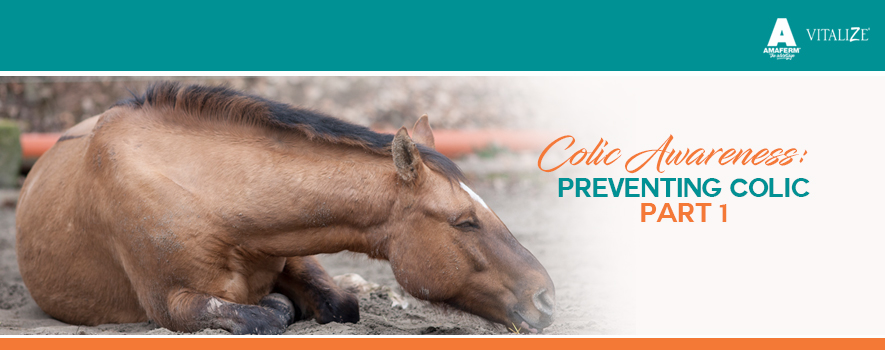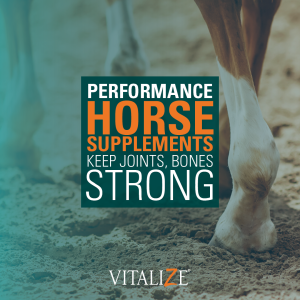
August marks the beginning of the school year, changing temperatures, and end of summer horse shows! But, there is something even more important about August: it is Vitalize®’s colic awareness month. Recent studies have indicated that there are nearly 920,000 cases of colic every year in the United States alone.
What is colic?
Colic is pain originating from the abdomen of the horse, usually in the gut, which can be caused by gas build-up, displacements, impactions (blockage), or torsions (twists) due to the animal’s digestive anatomy. The reason horse-lovers fear the “c”-word is because similar observed symptoms (listed below) can result in many different types of the condition, ranging from mild to extremely severe. Colic is the leading cause of death in adult horses, making this a crucial topic for discussion.
Our first step is always prevention. But when prevention fails, we must also know the symptoms & act quickly!
Common symptoms include:
- Lying down, rolling, or groaning uncomfortably
- Kicking or looking at its belly
- Pawing or pacing in its stall
- Stretching out
- Flehmen response (lip up)
- Not passing manure
- Not drinking water
- Not eating
- Not exhibiting frequent gut sounds
Although frightening, colic often results directly from the horse’s diet, meaning we can help play a part in preventing it! This week’s colic tip is:
Forage, Forage, Forage!
Horses are grazing animals, so their digestive tracts are designed to process high-fiber, low-carbohydrate forages such as quality grass or hay 24/7, like they would in their natural habitat. This makes the digestive system work continuously, and the extensive chewing creates optimal saliva for the horse, which buffers stomach acids.
Because we have transformed them into performance athletes, our horses are likely in a stall most of the day where we are the ones who must control their forage intake. By providing quality hay to your horse at all times (whether in a stall or in turnout) you can help their digestive system run smoothly, helping prevent cases of upset stomach.
Tune in next week for another colic prevention tip to keep your horse at its best!

